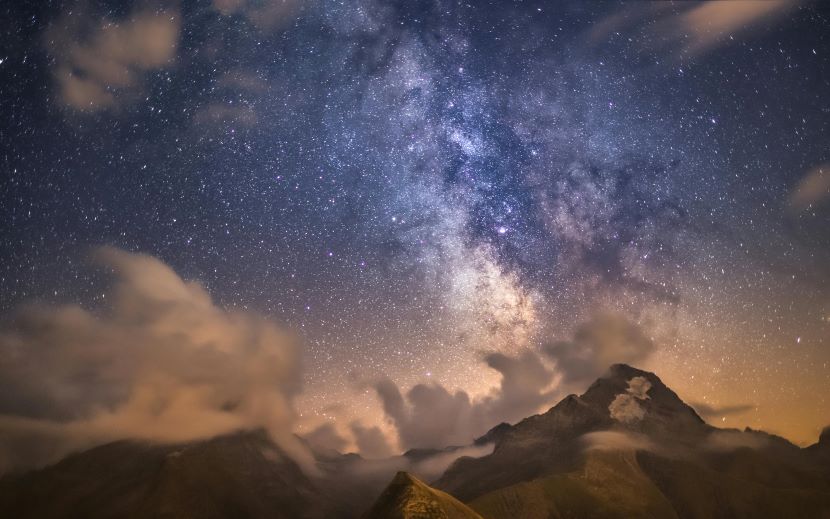Uttarakhand Charts New Horizons With Statewide Astro Tourism Guide Program To Illuminate Its Night Skies
Uttarakhand introduces a statewide astro tourism guide training program to boost stargazing experiences and create skilled tourism professionals.
A new chapter in Uttarakhand’s tourism landscape has been unveiled with the launch of a statewide skill development program aimed at training Astro Tourism Guides. This landmark initiative is set to position the Himalayan state as a premier destination for stargazing enthusiasts and astronomy-inspired travellers. By combining its natural altitude advantage, pristine skies, and growing interest in celestial experiences, the state is enhancing its tourism portfolio in a way that is both culturally enriching and economically promising.
A Strategic Boost to Niche Tourism
The program is being introduced to meet the growing global demand for unique travel experiences that blend science with leisure. Astro-tourism, a niche within the broader sustainable tourism sector, has emerged as a powerful attraction for travellers seeking authentic, educational, and nature-based journeys. The introduction of skilled guides will ensure visitors receive accurate astronomical insights while enjoying spectacular night skies.
This step is seen as part of a wider strategy to diversify Uttarakhand’s offerings beyond trekking, pilgrimage, wildlife reserves, and yoga retreats. The focus is now on promoting high-value tourism that elevates visitor engagement and adds depth to the travel experience.
Leveraging Natural Strengths
Uttarakhand holds an exceptional competitive edge for astro-tourism. Its clear alpine skies, low light pollution in remote regions, and vast elevated terrains make it naturally suited for stargazing. The Himalayan backdrop provides unmatched viewing conditions for constellations, planets, meteor showers, and deep-sky objects. Villages and high-altitude sites in districts such as Chamoli, Pithoragarh, and Munsiyari present perfect conditions for astronomical observation.
Such natural assets are now being strategically utilised to create a tourism segment that not only draws domestic and foreign visitors but also fosters local livelihood opportunities.
Creating Qualified Astro-Tourism Guides
Central to this program is the training of dedicated astro-tourism guides well-versed in celestial phenomena, telescope operation, and visitor engagement. These professionals are expected to become the bridge between scientific knowledge and tourist curiosity, enabling travellers to take home not just memories but meaningful insights into the universe.
The guides will be trained to interpret astronomical data, narrate mythological and cultural stories linked to celestial objects, and operate modern stargazing equipment. With this unique blend of practical skills and storytelling ability, these guides aim to make astro-tourism both informative and emotionally resonant for visitors.
Economic Impact and Local Empowerment
The initiative is designed not only to attract visitors but also to create employment opportunities in rural and semi-urban communities. By training residents from across the state, the program ensures that economic benefits remain within local areas. Villagers who have traditionally relied on agriculture or seasonal tourism will gain new avenues of livelihood through guided stargazing tours, night treks, and astronomy-themed accommodations.
This focus on capacity building aligns with sustainable tourism principles, ensuring the industry grows without eroding natural or cultural heritage.
Expanding Tourist Seasons
One of the key advantages of astro-tourism is its ability to extend the tourist calendar beyond peak seasons. Unlike adventure tourism, which is weather-dependent, stargazing can be enjoyed year-round, particularly during clear winter nights and predictable astronomical events.
By promoting year-round activities, the program aims to level out seasonal fluctuations in tourist arrivals, thereby stabilising income flows for local communities and tourism operators. Special astro-tourism events, such as meteor shower viewings or planetary conjunction nights, may be introduced to attract visitors during traditionally slower months.
Integrating Science and Culture
Astro-tourism in Uttarakhand is set to be more than scientific observation; it will be an immersive cultural experience. The guides being trained will integrate ancient Indian astronomical knowledge, folklore, and local legends into their presentations, offering a blend of science and storytelling. This incorporation of intangible heritage adds depth to the tourism experience, appealing to both scientific minds and culturally curious travellers.
Such integration also supports responsible tourism by encouraging visitors to appreciate and respect the traditions connected to the night sky in Himalayan communities.
Infrastructure and Destination Development
Alongside guide training, attention is being given to infrastructure to support astro-tourism. Dedicated viewing decks, high-quality telescopes, and safe night-time accessibility are expected to be developed in key locations. Accommodation providers may create themed stays, integrating night-sky photography workshops or astronomy talks into their offerings.
These measures aim to package astro-tourism experiences so that visitors can enjoy them as part of complete itineraries, combining stargazing with trekking, heritage visits, and local cuisine exploration.
Opportunities for Tourism Operators
Private tour operators and hospitality businesses in Uttarakhand are poised to benefit from the shift towards astronomy-based travel. They will have the chance to partner with trained guides to offer specialised tours, combining day-time nature excursions with night-time celestial viewing. Luxury resorts, eco-lodges, and camping sites are expected to incorporate astro-tourism into their itineraries to enhance customer appeal.
This approach has the potential to drive higher visitor satisfaction and longer stays, directly increasing revenue for the local tourism industry.
Positioning Uttarakhand Globally
Astro-tourism has gained popularity in destinations as diverse as Chile’s Atacama Desert, New Zealand’s Tekapo region, and Hawaii’s Mauna Kea. Uttarakhand, with its unique Himalayan charm and cultural richness, is now being strategically positioned in this global league. The skill development program gives the state a crucial advantage, ensuring visitors receive professional, well-curated experiences rivalling international standards.
Enhanced marketing campaigns are expected to underline Uttarakhand as a heavenly retreat for astronomy enthusiasts and travellers seeking serene highland escapes under star-filled skies.
Sustainable Practices for a Fragile Ecosystem
Given Uttarakhand’s delicate ecological balance, astro-tourism development is being anchored in sustainable practices. Limiting artificial lighting, promoting eco-friendly accommodation, and ensuring waste-free night expeditions are part of the responsible tourism approach anticipated under this program.
Educational outreach to visitors will also encourage respect for natural surroundings, reducing the risk of environmental degradation. By combining economic growth with conservation, the program seeks to protect the pristine nature that makes Uttarakhand ideal for stargazing.
Future Prospects
With the implementation of this statewide training initiative, Uttarakhand’s tourism sector is poised for significant growth in the coming years. As global interest in astronomy-related travel continues to rise, the state could attract new demographics of visitors, from amateur astronomers to families seeking unique vacation experiences.
Partnerships with travel media, astronomy clubs, and educational institutions could further strengthen the state’s positioning. The cumulative effect of these efforts is expected to make Uttarakhand a key name in the global astro tourism map, contributing to both visitor delight and community empowerment.
The post Uttarakhand Charts New Horizons With Statewide Astro Tourism Guide Program To Illuminate Its Night Skies appeared first on Travel and Tour World


Comments and Responses
Please login. Only community members can comment.